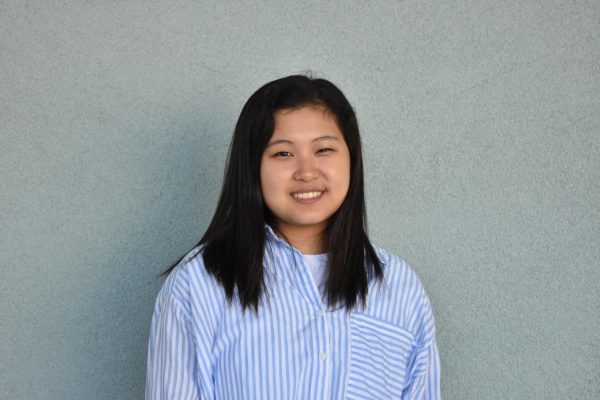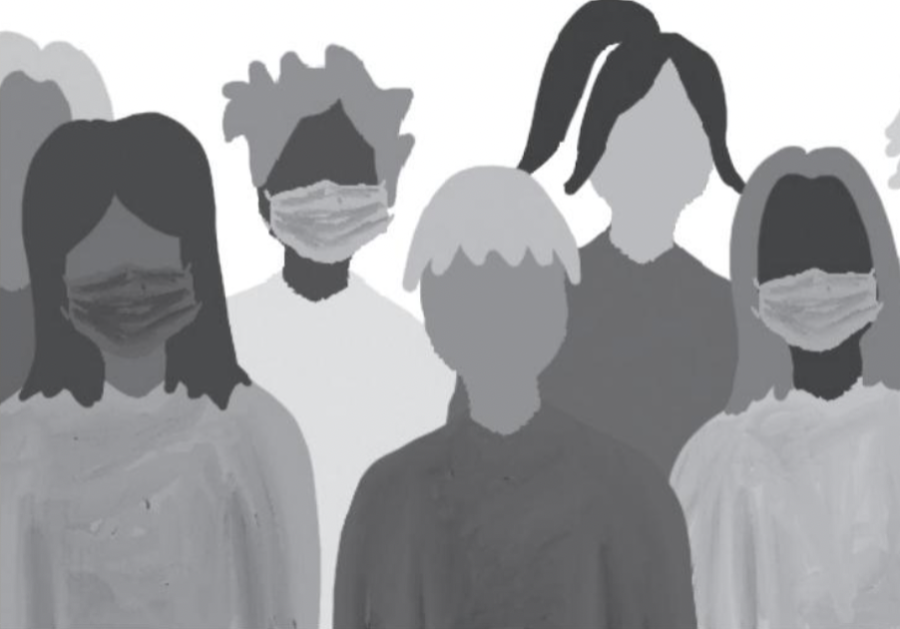Students, staff react cautiously to removal of mask mandate
As of March 12, masks have become optional in schools following an order from Governor Gavin Newsom announced on Feb. 28. Though masks are still strongly recommended by the state government, students and staff are now free to decide whether they would like to continue wearing masks indoors.
Social studies teacher Dr. Benjamin Beresford recalled that he did not expect the relaxation of the mask mandate. “I’m not sure I agree with the decision, but when I first heard about the mandate, I felt fortunate to work in a district with a high vaccination rate,” he said. “It’s also hard to say that it is too early to be unmasking because we don’t know what a post-pandemic world will look like.”
Junior Evan Huynh had concerns that the mask mandate was lifted too early. “I was surprised when I first heard about it because I thought it was a bit too early with all of the variants,” he said. “However, I think it’ll be nice to see some familiar faces and go back to how it was before COVID-19.”
On the other hand, some students like freshman Evangeline Albrecht anticipated the mandate relaxation and believe it is a step in the right direction. “We have reached a point where we can ease out of wearing masks, especially since we live in Palo Alto, which is pretty conservative and safe,” she said. “I think it’s been a long-time coming, and I am honestly excited for the steps.”
However, the mandate raised several concerns. Beresford, for one, remains worried about the new COVID-19 variants. “There is the new BA.2 variant, and there is a lot of speculation that it will show up in the U.S.,” he said. “With this new mask mandate, we might see ourselves back in masks by the end of the school year. The pandemic isn’t over yet.”
Not all concerns are safety-related, though. Albrecht noted that unmasking may lead to insecurities about appearance. “I think that the mandate will cause some newfound insecurities that will make it hard to start unmasking,” she said. “Masks can be annoying, but they can provide anonymity and cover up your face. You don’t really need to care about your looks with a mask, and without it, you become more self-conscious.”
Huynh believes the new mandate will benefit student education. “I’ll be able to connect with peers and teachers on a more personal level [with maskless instruction],” he said. Dr. Beresford seconds Huynh’s views that maskless lessons will improve the teaching experience. “Especially for world languages, the ability to see the phonics will be a big advantage, particularly for the younger and beginner students,” he said.
Still, Dr. Beresford plans to keep his mask on. “It’s an easy precaution that I can take that has almost no effect on my life and ability to do my job,” he said. “It protects other people. There may be students who are hesitant to remove their masks, but if they want to take them off, I’m okay with them keeping them off or on.”
Albrecht believes that it will take some time for people to begin taking off their masks. “[On the first day,] everyone was wearing their masks,” she said. “For the first week, I don’t think the new mandate will make much of a difference. But I think that after a couple people begin taking off their masks, it will become more comfortable and people will gradually begin to follow and start unmasking.”
Huynh plans to unmask after observing and waiting for some time. “Personally, I might wait just a little bit to see if everything is all right and whether everyone else is wearing or not wearing a mask,” he said.
Your donation will support the student journalists of Henry M. Gunn High School. Your contribution will allow us to purchase equipment and cover our annual website hosting costs.

Senior Michelle Koo is a news editor and graphic artist for The Oracle. Outside of school, she loves to play viola, learn taekwondo and watch Disney.


